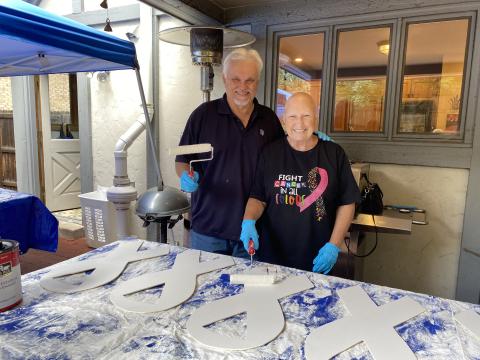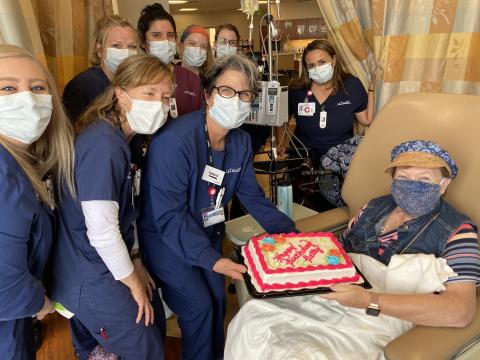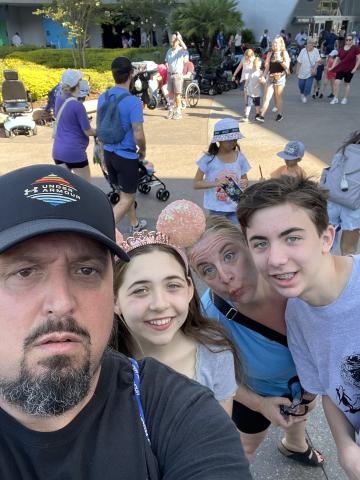Bill Moren and Randall Barrett both have wives with lung cancer. Betty Moren and Katie Barrett were both diagnosed at stage IV. And all four are hoping for the same thing—staying on a stable path forward.
Even with these similarities, Bill and Randall approach caregiving differently. In separate conversations, they touch on the emotional toll of lung cancer and how they respond.
Bill shares how being aware of Betty’s emotions shaped his role as a caregiver. Randall talks about accepting and managing the constant stress he’s felt since becoming a caregiver after Katie’s diagnosis.
Bill Moren: Be Strong and Active in Your Caregiving Role

Bill’s wife, Betty, was diagnosed in 2017. They’ve since gone through 1,000 tests, 200 appointments, 20 emergency room visits, and 10 hospitalizations, all of which Bill shares with friends and family through nearly 70 CaringBridge journal entries.
“One thing I’d tell a new caregiver is that no matter how dire the diagnosis, they can take a strong and active role in the treatment plan. You can have an influence on what happens, so dive in and make sure you understand what’s going on, what the options are, and share your thoughts. It’s important to feel confident,” says Bill.
Bill got an early look at the role he’d need to play as a caregiver. After leaving an appointment, Betty couldn’t recall what the doctor said after she heard the word "cancer."
“It was my job to understand and know the path forward. I knew I had to be Betty’s eyes and ears in appointments. I needed to be able to answer her questions when she asked what the doctor said about this or about that.”
Bill learned quickly that, although he and Betty go to appointments together, it’s a different experience for each of them. Betty has to take in and listen to the hard truths of her cancer and treatment plan, while Bill takes notes and makes sure to understand the details and protocols of what they need to do.

“It’s probably easier for me to separate my emotions since I’m not the one being told I have cancer. We’ve had a lot of emotional potholes and scary thoughts with her cancer, but I’ve needed to be the one who can reframe my mindset and take those emotions out at times and focus on what needs to happen for Betty,” says Bill.
Randall Barrett: Don’t Fight the Negative Thoughts
During the hectic months following Katie’s stage IV lung cancer diagnosis in May 2023, Randall noticed a change in himself. He was constantly stressed and worried.

“The LUNGevity caregiver meetups are my place to deal with my stress. I can’t dump those emotions on Katie. Finding the groups and going to the meetups helped me realize I wasn’t crazy to be stressed and worried all the time,” says Randall.
The virtual caregiver meetups happen monthly and helped Randall see that it was normal to feel the way he did.
“The most important thing I’ve learned is don’t fight the negative thoughts. I need to give them time and accept them before I’m able to move on.”
A practice that helps Randall with these emotions is looking at the positive stories of others.
“It’s so helpful to hear other people’s stories—they let me breathe a sigh of relief when I need it. It’s so easy to go on the LUNGevity Facebook groups and scroll through the positive stories people share. To see people talking about the same medication Katie is on and their success with it.”
Some people might need a break from the "cancer space" when it’s the reason they’re feeling stressed. Randall, however, uses that space to find hope.
The LUNGevity Caregiver Tips webpage has helpful information about emotional support, working with the healthcare team, talking about lung cancer, and more.

